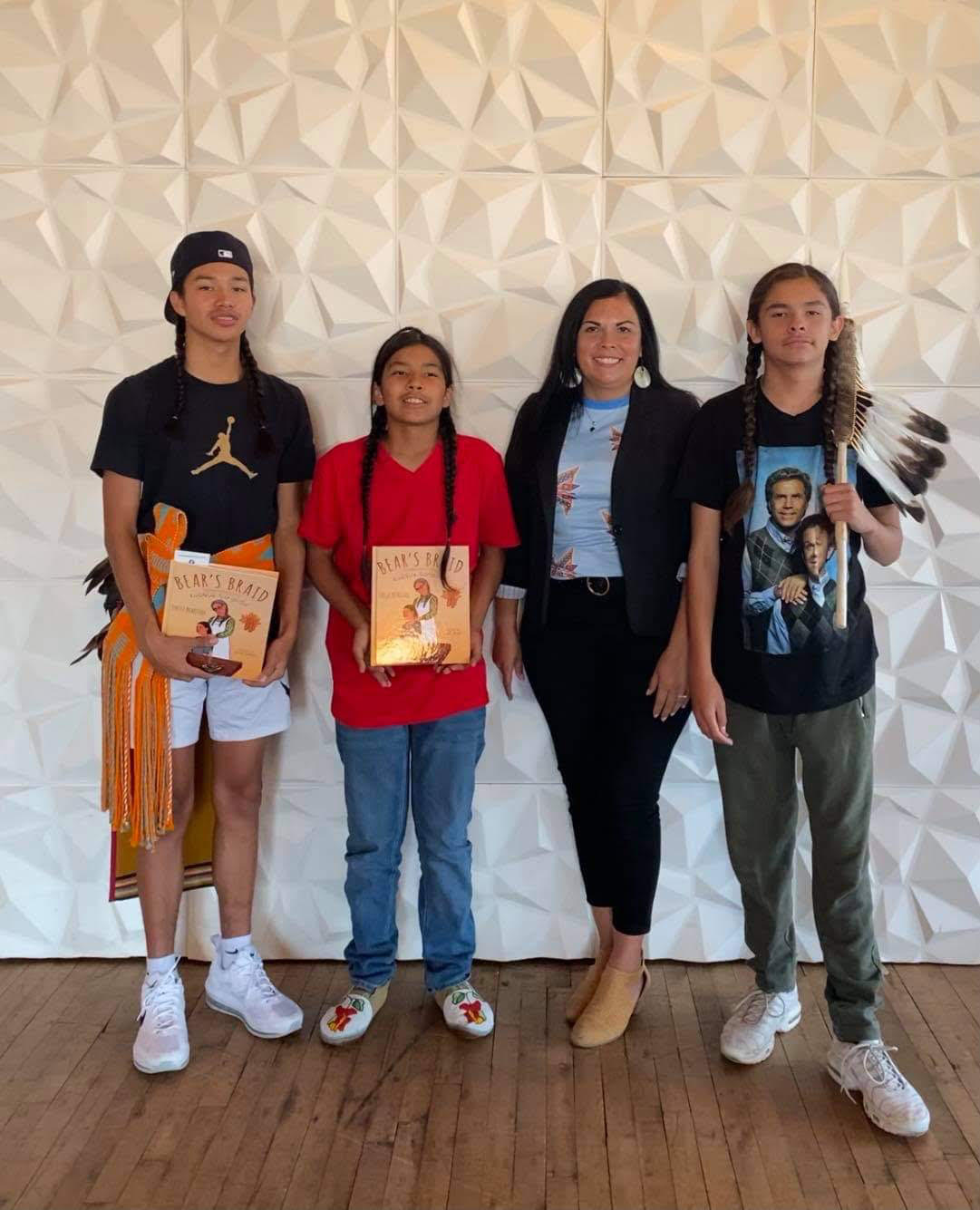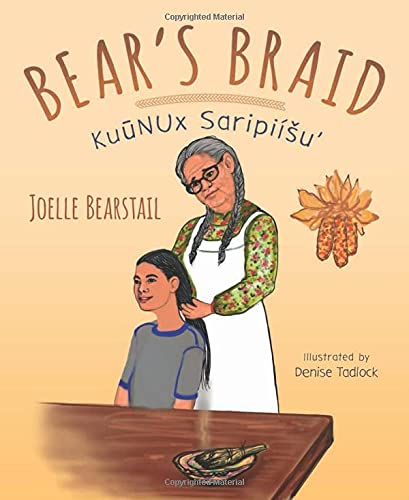
- Details
- By Darren Thompson
BISMARCK, N.D.— A mom and educator from North Dakota has released a children’s book aimed at answering why many Indigenous boys and men have long hair. Bear’s Braid, Native author Joelle Bearstail’s first book, was inspired by experiences her son had while attending school in Bismarck, N.D.
“I started Bear’s Braid more than three years ago, after our family had some issues with our son Thomas being teased for being Native American and having long hair,” Bearstail told Native News Online. “He was called derogatory names, told to cut his hair, and called a girl.”
Want more Native News? Get the free daily newsletter today.
After several bullying incidents at school, Bearstail’s family met with teachers and administrators to discuss arranging cultural presentations about Native Americans to students and teachers in the school.
“I believe educators have a responsibility to address issues when they happen and make teachable moments of them,” Bearstail said. “Presentations do help—kids get curious and ask questions.”
 (Courtesy photo)Bear’s Braid is a story of two friends’ efforts to strengthen their connection to their Indigenous roots and bridge the gap between schoolmates and family, Bearstail said. Bear’s Braid is illustrated by Denise Tadlock.
(Courtesy photo)Bear’s Braid is a story of two friends’ efforts to strengthen their connection to their Indigenous roots and bridge the gap between schoolmates and family, Bearstail said. Bear’s Braid is illustrated by Denise Tadlock.
After Bear’s Braid was released and more families became aware of the book’s message, people have reached out to Bearstail and shared their own experiences.
“I believe this story is important because it just isn’t my son’s experience, there are thousands of kids that go through this today,” she said.
Bearstail is a citizen of the Mandan, Hidatsa, and Arikara Nation from the Fort Berthold Indian Reservation. She has been a classroom teacher, curriculum specialist and education liaison for several years.
She is also the founder of ImagiNative Inc., a nonprofit organization that strives to empower Native youth to embrace their talent, creativity, and individuality.
She recently advocated for North Dakota Senate Bill 2304, a bill that requires all elementary and secondary public and nonpublic schools in North Dakota schools to teach Native American history, culture, and treaty rights. Native News Online reported on April 9, 2021 that SB2304 passed 72-21 in a last-minute effort in this year’s legislative session.
Donate today so Native News is free for all readers.
“We do our best to instill confidence in our kids and for them to be proud of who we are, but putting up with something so often can really drag someone down,” she said. “The recent passing of Senate Bill 2304—to teach our tribal history in the classrooms—is a good step in the right direction.”
While she was planning the layout for Bear’s Braid, Bearstail wanted to add what she calls a “celebration of boys with braids.”
“We were happy to receive photos of proud young warriors from all over the United States and Canada,” she said. “I wanted to add something our kids can relate to and see that there are many out there just like them. That’s a very special part of the book.”
The timing of the book builds on a recent wave of momentum being experienced by Indigenous storytellers, including Firekeeper’s Daughter author Angeline Boulley (Ojibwe), 2021 Pulitzer Prize winning author Louise Erdich (Anishinaabe), U.S. Poet Laureate Joy Harjo (Muscogee) and Sterling Harjo, creator and executive producer of the critically acclaimed TV show Reservation Dogs.
“It’s important that our kids can see people that are like them in all forms of media,” said Bearstail. “I am so happy to see shows like Reservation Dogs and Rutherford Falls out there right now! We need that, it’s long overdue.”
You can learn more about or purchase Bear’s Braid at ImagiNative, Amazon, or Mascot Books.
More Stories Like This
Bard College Center for Indigenous Studies (CfIS) Hosts Annual Symposium With Keynote Speaker Miranda Belarde-Lewis on March 9–10American Indian College Fund Announces Spring 2026 Faculty Fellow Cohort
Navajo Nation Signs $19 Million Diné Higher Education Grant Fund Act into Law
Dr. Shelly C. Lowe to Be Inaugurated as IAIA President March 26–27
Tlingit Language Courses Expand for Students to Learn With Families At-Home
Help us defend tribal sovereignty.
At Native News Online, our mission is rooted in telling the stories that strengthen sovereignty and uplift Indigenous voices — not just at year’s end, but every single day.
Because of your generosity last year, we were able to keep our reporters on the ground in tribal communities, at national gatherings and in the halls of Congress — covering the issues that matter most to Indian Country: sovereignty, culture, education, health and economic opportunity.
That support sustained us through a tough year in 2025. Now, as we look to the year ahead, we need your help right now to ensure warrior journalism remains strong — reporting that defends tribal sovereignty, amplifies Native truth, and holds power accountable.
 The stakes couldn't be higher. Your support keeps Native voices heard, Native stories told and Native sovereignty defended.
The stakes couldn't be higher. Your support keeps Native voices heard, Native stories told and Native sovereignty defended.
Stand with Warrior Journalism today.
Levi Rickert (Potawatomi), Editor & Publisher
